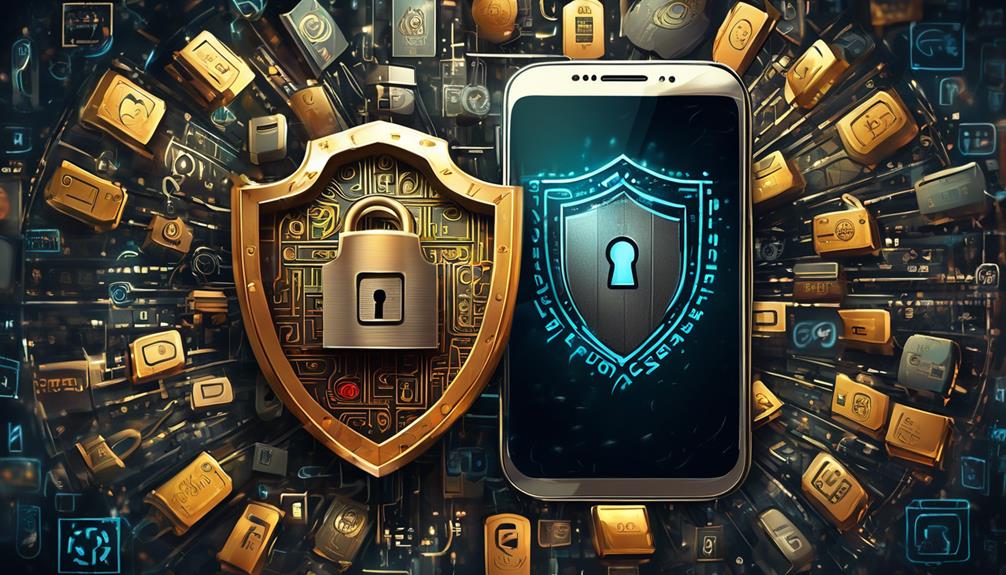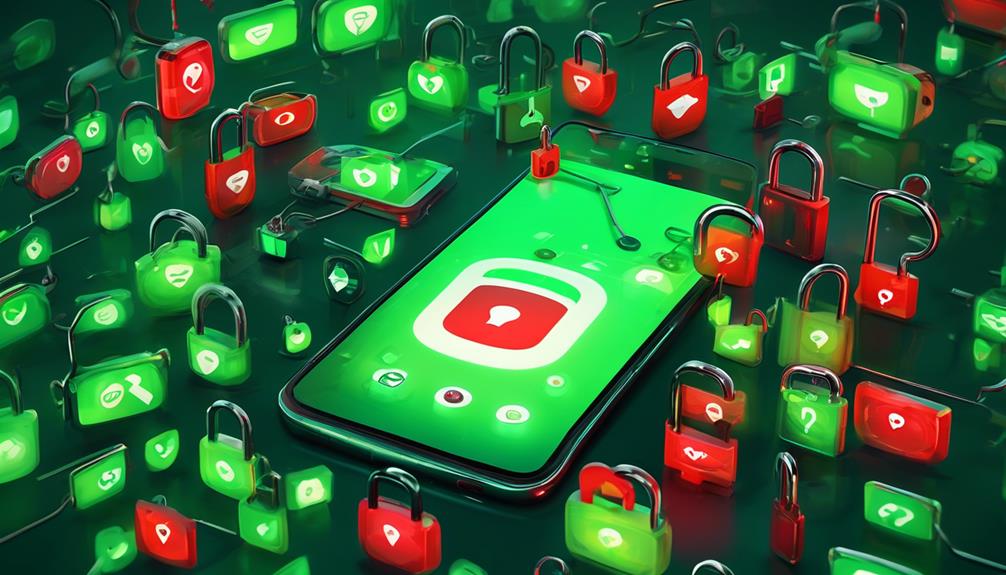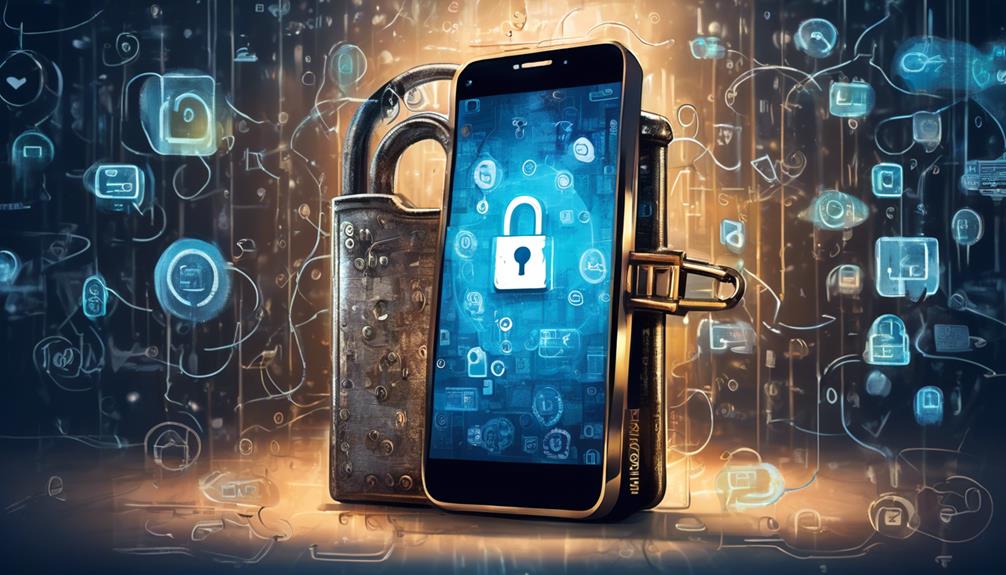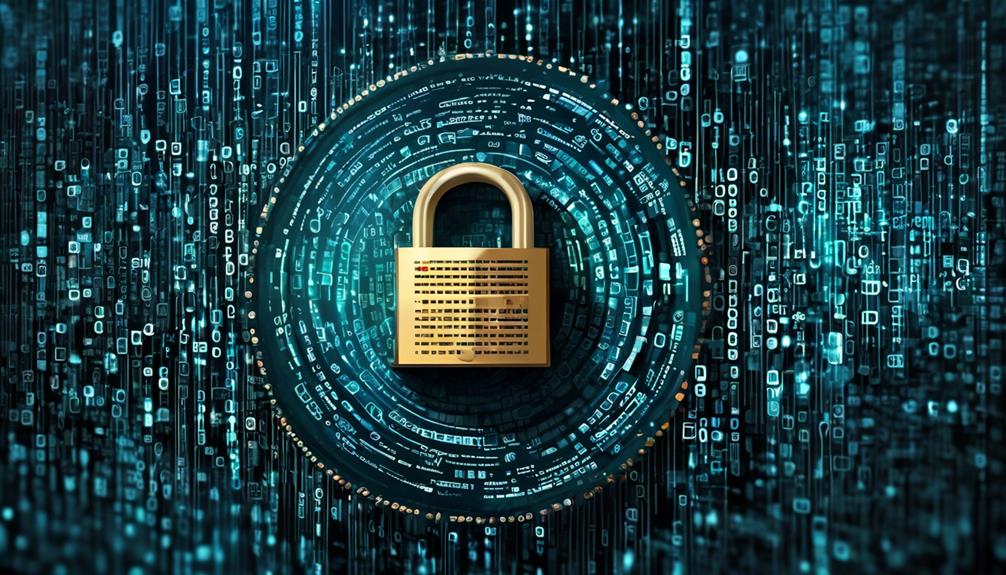In the digital age, data breaches are rampant, akin to monsoon rains. Safeguarding personal conversations is now essential, like locking doors at night. Our expert writer, specializing in cybersecurity, emphasizes the importance of safe messaging protocols. They are the cornerstone of modern communication, the writer suggests. They will guide beginners through encryption's complex maze. Additionally, they will highlight the most reliable encrypted messaging apps. Furthermore, they will show how to set them up securely.
The writer will lay the groundwork for verifying contact identities. They will also teach how to recognize unsafe messages. One may wonder about the dangers in innocent-looking chats. The writer promises to unveil strategies to fortify messaging apps. These strategies are against the latest threats, ensuring the audience remains alert. The battle for privacy is constantly changing, and our vigilance must adapt accordingly.
Understanding Secure Messaging

Secure messaging hinges on encryption protocols to ensure that only the sender and intended recipient can access the content of a message. This technology is vital in maintaining privacy and keeping digital footprints to a minimum. Encryption transforms the original message into an unreadable format that can only be deciphered with a specific key. Without the key, the encrypted data appears as gibberish, thwarting unauthorized access and safeguarding sensitive information.
Individuals are increasingly concerned about their privacy online, which is why understanding privacy policies and secure messaging is essential. Privacy policies outline how services handle user data, but secure messaging ensures that these details remain confidential. By using secure messaging apps with end-to-end encryption, users create a private communication channel that even service providers cannot access.
Data-driven studies suggest that secure messaging not only protects privacy but also fosters a sense of belonging among users. When individuals are confident that their communications are private, they're more likely to share and engage with others. This creates a trusted environment where users feel they belong to a community that values and protects their personal space and conversations.
The Importance of Encryption
Encryption is the cornerstone of secure messaging, ensuring message contents are accessible only to intended recipients. Consequently, end-to-end encryption safeguards data privacy. It encrypts messages on the sender's device and decrypts them solely on the receiver's device. Importantly, the strength of encryption hinges on robust keys. Managed correctly, these keys greatly diminish the chance of unauthorized access.
Understanding End-to-End Encryption
End-to-end encryption stands at the forefront of securing online dialogues. Consequently, it guarantees that only the interlocutors can access their conversations. Notably, it utilizes encryption algorithms aimed at maintaining message integrity and privacy. Let's explore how it functions:
Regarding encryption algorithms, they are of two kinds. Firstly, the asymmetric type involves a pair of keys: one public, the other private. Secondly, the symmetric type utilizes a single key for both encrypting and decrypting.
When discussing message integrity, it involves two methods. Primarily, hash functions are employed to ensure the message remains unaltered. Additionally, digital signatures are crucial to verify the sender's identity.
The importance of end-to-end encryption is undeniable. It plays a crucial role in creating a communal sense of security. By fostering a private and secure communication environment, it builds trust. This trust is essential for any community to flourish, as it depends on the confidence in the encryption's ability to protect their discussions from external entities.
Keys to Data Privacy
Building upon the foundation of end-to-end encryption, the keys to data privacy highlight the importance of strong encryption methods. These methods act as guardians, ensuring individuals maintain control over their personal information. Amidst increasing concerns of anonymity, robust protocols are crucial for keeping user identities confidential. They utilize advanced cryptographic techniques, effectively securing messages from unauthorized third parties. Only those with the unique decryption key can access the encrypted content. Commitment to technical accuracy and data security measures is critical. It helps in building trust within communities that prioritize privacy. By adopting these standards, users collectively work to shield their digital communications. This protection keeps their online interactions safe from external scrutiny.
Popular Encrypted Messaging Apps

Secure messaging apps are vital for user privacy in online chats. They use end-to-end encryption, allowing only the involved users to see messages. This part evaluates popular apps' security measures. The goal is to determine their success in protecting user data.
Secure Messaging App Overview
While numerous messaging applications claim to offer robust security, a select few have risen to prominence through the implementation of end-to-end encryption and other advanced privacy features. These apps prioritize user privacy and are typically more trusted for sensitive communication.
- Data retention policies:
- Some apps collect minimal data, storing only what's necessary for operation.
- Others may have a policy of not retaining messages after they've been delivered.
- Message destruction capabilities:
- Automatic deletion of messages after a set period or upon reading.
- Users can often manually delete messages, ensuring they're gone forever.
Members of the privacy-conscious community gravitate towards these apps, valuing the collective commitment to maintaining a secure communication environment.
End-to-End Encryption Explained
End-to-end encryption is pivotal for private communications. It ensures only the sender and recipient can view messages. Upon sending, algorithms encrypt the data, transforming it into a code. This encrypted code traverses networks securely, eluding unauthorized viewers. Upon arrival, a decryption algorithm reconstitutes the message to its original state.
This process is essential for preserving message integrity. It effectively blocks unwanted access, safeguarding our digital dialogue. In our community, privacy is highly valued. Consequently, encryption in apps like WhatsApp and Signal acts as our fortress. It functions as our shared guardian of secrets.
Comparing App Security Features
Popular encrypted messaging apps vary significantly in their security features, offering a spectrum of protections that cater to different user needs and privacy concerns. Users who seek a sense of belonging in secure digital spaces must consider app permissions and message backups when comparing apps.
- App Permissions
- *Signal*: Minimal permissions; doesn't store data.
- *WhatsApp*: Access to contacts; cloud backups may compromise security.
- Message Backups
- *Telegram*: Offers cloud storage, but it's optional.
- *iMessage*: iCloud backups can be encrypted but are not by default.
When assessing app security features, it's crucial to evaluate how each app handles users' personal data and the extent to which message backups are protected. This ensures that one's digital interactions remain within their trusted circle, safeguarded from unwanted intrusions.
Setting Up Secure Messaging

Setting up secure messaging requires implementing end-to-end encryption. Thus, only intended recipients can access message content. Users should focus on message authentication. Consequently, this validates message integrity and origin.
To defend against attacks, techniques like digital signatures or HMAC are used. Indeed, these methods are effective against tampering and impersonation. Privacy settings are also vital. They manage visibility of online status, read receipts, and profile information.
Users must learn about these settings. Thereby, they control their digital footprint and prevent data breaches. It's crucial to choose platforms with robust privacy controls. Hence, users feel secure and respect their personal boundaries.
Secure messaging also involves verifying contact identities. For example, security codes or key verification prevent man-in-the-middle attacks. Regular updates of the app are essential too. Therefore, they maintain the latest security patches and close vulnerabilities.
Verifying Contact Identity
In the secure messaging sphere, verifying a contact's identity is crucial. This step ensures communication is safe from unauthorized interception or manipulation. Identity spoofing is common among cyber attackers, putting digital conversations at risk. Therefore, establishing trust is essential for a secure messaging environment.
Here's how to confirm the identities of your contacts and prevent spoofing:
Firstly, consider digital signatures and certificates. Use cryptographic signatures to verify a sender's identity accurately. Secondly, rely on trusted certificate authorities to authenticate user certificates effectively.
Furthermore, public key verification is vital. Securely exchange public keys before starting any conversations. Lastly, employ robust verification methods. These methods include fingerprint comparison or the use of a trusted introducer for added security.
Recognizing Unsafe Messages

Recognizing unsafe messages is crucial for secure digital communication. Often, these messages contain malicious links and deceptive content. They may also ask for sensitive information.
Phishing awareness is essential; it entails being vigilant about emails that could deceive. Individuals might be tricked into giving personal data or clicking dangerous links. Such links could lead to malware or identity theft.
Digital community members should know that legitimate organizations rarely ask for sensitive details via unsolicited messages. Upon receiving an unexpected message, scrutinizing the sender's address is key. One should also look for generic greetings and notice grammatical errors, which are clear warning signs.
Suspicious links may appear legitimate at first glance. However, by hovering over them, the true URL is often revealed. It is crucial not to click on these links. Instead, one should confirm the source's authenticity through independent, official channels.
Security measures like email filters are recommended by data-driven protocols. To prevent threats, it's important to update software regularly. These steps help maintain a safer digital environment for everyone.
Keeping Your App Updated
Keeping your app updated is essential, as it ensures the latest security patches and features are in place to protect against potential vulnerabilities. As part of a community committed to secure communication, it's vital to understand the importance of update frequency and effective patch management. Regular updates not only introduce new features but also fix security flaws that could be exploited by attackers.
Here's how you can stay ahead:
- Update Frequency
- *Consistent Schedule*: Align updates with a regular schedule to maintain security integrity.
- *Automatic Updates*: Enable auto-updates to ensure you're always using the latest version.
- Patch Management
- *Monitor Advisories*: Keep an eye on security bulletins for urgent patches.
- *Test Patches*: Verify new updates in a controlled environment before full deployment.
Frequently Asked Questions
How Do Secure Messaging Protocols Impact Battery Life and Device Performance?
Secure messaging protocols add encryption overhead. Consequently, they lead to performance trade-offs. These protocols can accelerate battery drainage. Moreover, they might decelerate devices. Nonetheless, they are crucial for ensuring users' security in digital communities.
Can Secure Messaging Protocols Be Integrated With Existing Enterprise Systems for Secure Business Communications?
Secure messaging protocols can indeed be integrated with existing enterprise systems. Nevertheless, integration challenges must be carefully managed. Additionally, system compatibility is crucial to ensure seamless and secure business communications among team members.
How Do Different Countries' Privacy Laws Affect the Use of Secure Messaging Apps?
Secure messaging apps face jurisdiction challenges due to diverse privacy laws, which affect data sovereignty. Consequently, users must ensure compliance with varying regional data protection regulations for their communication.
What Are the Potential Consequences of Using Unauthorized Modifications or "Mods" of Popular Encrypted Messaging Apps?
Using unauthorized mods can lead to data breaches. Moreover, these actions undermine the app's encryption integrity. Consequently, users may face account bans. This practice compromises their privacy. As a result, users could be exposed to legal consequences. Additionally, they are vulnerable to cyber threats in their community.
How Can Users Securely Back up Their Messaging History Without Compromising the Encryption and Security of Their Messages?
Users can ensure secure message backups by storing encryption keys locally. Additionally, they can utilize trusted cloud services that prioritize privacy. This approach maintains a secure, connected community without compromising encryption standards.
Conclusion
In today's digital landscape, your privacy is undoubtedly worth protecting. Consequently, choosing encrypted messaging apps is crucial. Additionally, maintaining vigilant practices is essential for safeguarding your conversations. Secure your app with updates to fend off potential security threats. Furthermore, always verify contacts to avoid deceitful messages. Indeed, secure messaging isn't just wise; it's necessary for digital autonomy. Remember, every message is important. Ensure that your messages remain private, intended only for you and your chosen recipients.



